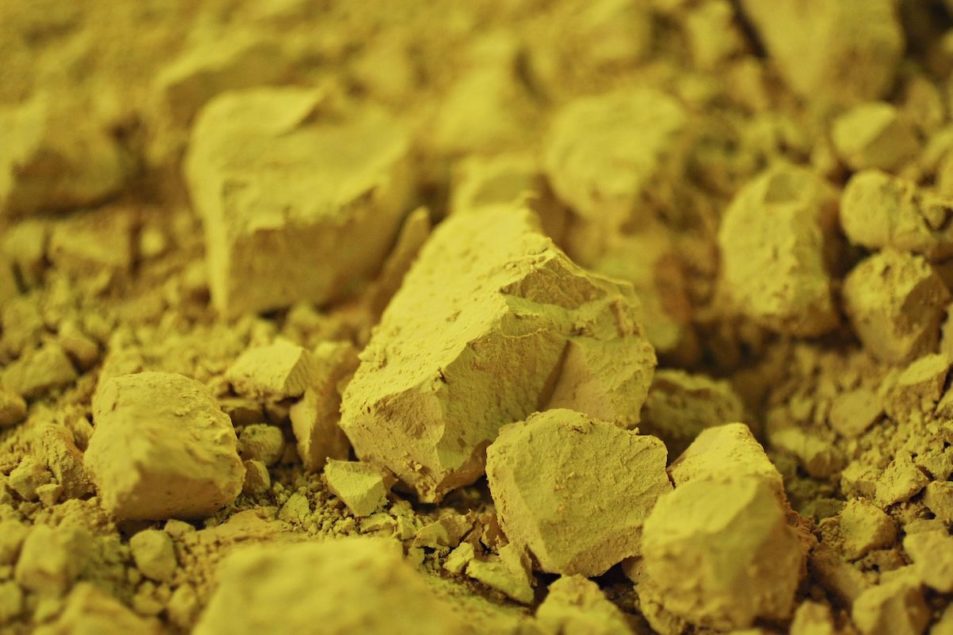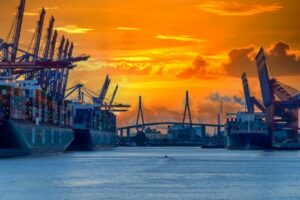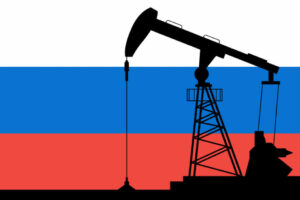
Kazatomprom, the world’s biggest uranium miner, warned that it’s likely to fall short of its production targets over the next two years, adding another risk to supply as demand for the nuclear fuel rebounds.
The London-listed company, which is controlled by Kazakhstan’s government via its sovereign wealth fund, said January 12 that shortages of sulfuric acid and construction delays at newly developed deposits are creating production challenges that could persist into 2025. It will outline the likely impact on output in a trading update by February 1, it said.
The setback adds to a list of supply challenges that have helped to catapult spot uranium prices to 15-year highs, with 2023’s coup in Niger disrupting shipments to European reactors and key miner Cameco Corp., lowering its production targets due to challenges at its operations in Canada. Many mines were mothballed as prices plunged in the wake of the Fukushima disaster, and now operators are racing to bring them back online as demand rebounds.
The global decarbonization drive and the ructions in energy markets in the wake of Russia’s invasion of Ukraine have helped spark a renaissance in the nuclear industry, with governments increasingly willing to sign off on new projects despite cost overruns and delays that continue to plague the sector.
Read more: Chinese Miner Takes Glencore’s Cobalt Crown as Output Jumps 170%
Shares in uranium miners jumped globally during the week of January 12 after the U.S. said it’s soliciting bids to boost domestic production of a nuclear fuel known as high-assay low-enriched uranium, or HALEU, in an effort to bolster national energy security. The U.K. also said the same week that it will build another large-scale nuclear power plant, beyond current projects by Electricite de France SA, as the nation maps out its biggest expansion of atomic energy in 70 years.
The U.K. will also invest up to £300 million ($383 million) to boost production of HALEU, which is currently only commercially produced in Russia.
The war in Ukraine has sparked efforts to ease reliance on Russia’s nuclear enrichment facilities, which are fed by Kazakhstan’s mines. The growing interdependence between the two countries has caused turmoil at Kazatomprom, with the sale of a stake in a massive new mine to Russia in 2022 prompting an exodus of senior managers.
The deal for part of the Budenovskoye mine, projected to become the world’s biggest source of the radioactive metal, to Russia’s nuclear power monopoly, Rosatom, went through at the end of 2022, people familiar with the matter told Bloomberg last year. The deal was pushed by Kazakhstan’s sovereign wealth fund against the wishes of the leadership at Kazatomprom, they said.
Kazatomprom said January 12 that it’s committed to fulfilling its contractual obligations to existing customers throughout 2024. It’s production plans for 2025 are subject to “considerable supply chain risks,” it added.
- SEO Powered Content & PR Distribution. Get Amplified Today.
- PlatoData.Network Vertical Generative Ai. Empower Yourself. Access Here.
- PlatoAiStream. Web3 Intelligence. Knowledge Amplified. Access Here.
- PlatoESG. Carbon, CleanTech, Energy, Environment, Solar, Waste Management. Access Here.
- PlatoHealth. Biotech and Clinical Trials Intelligence. Access Here.
- Source: https://www.supplychainbrain.com/articles/38851-worlds-biggest-uranium-miner-warns-of-production-shortfall
- :has
- :is
- $UP
- 1
- 12
- 2022
- 2024
- 2025
- 70
- a
- added
- adding
- Adds
- After
- against
- also
- an
- and
- Another
- ARE
- AS
- At
- atomic
- back
- become
- between
- Beyond
- Biggest
- Bloomberg
- bolster
- boost
- bring
- build
- by
- Canada
- caused
- chain
- challenges
- commercially
- committed
- company
- construction
- contractual
- controlled
- Corp
- Cost
- could
- countries
- Creating
- Crown
- Current
- Currently
- Customers
- de
- deal
- decarbonization
- delays
- Demand
- deposits
- Despite
- developed
- disaster
- Domestic
- drive
- due
- during
- ease
- effort
- efforts
- end
- energy
- European
- existing
- Exodus
- expansion
- facilities
- Fall
- familiar
- February
- Fed
- For
- France
- Fuel
- Fukushima
- fulfilling
- fund
- Global
- Globally
- Government
- Governments
- Growing
- Have
- helped
- Highs
- HTTPS
- Impact
- in
- increasingly
- industry
- into
- invasion
- Invest
- IT
- ITS
- January
- jpg
- jumps
- Key
- known
- large-scale
- Last
- Last Year
- Leadership
- likely
- List
- lowering
- Managers
- many
- Maps
- Markets
- massive
- Matter
- metal
- million
- mine
- miner
- Miners
- mines
- more
- nation
- National
- New
- newly
- next
- now
- nuclear
- Nuclear power
- obligations
- of
- off
- on
- online
- only
- Operations
- operators
- or
- out
- outline
- output
- over
- part
- People
- Plague
- plans
- plant
- plato
- Plato Data Intelligence
- PlatoData
- power
- Prices
- Produced
- Production
- projected
- projects
- pushed
- racing
- reliance
- Renaissance
- Risk
- risks
- Russia
- s
- SA
- Said
- sale
- same
- sector
- security
- senior
- Short
- shortages
- shortfall
- sign
- Source
- sovereign
- sovereign wealth fund
- Spark
- sparked
- Spot
- stake
- subject
- supply
- supply chain
- takes
- targets
- that
- The
- Them
- they
- Through
- throughout
- to
- told
- Trading
- two
- U.K.
- u.s.
- Ukraine
- Update
- via
- Wake
- war
- War in Ukraine
- warned
- Warns
- was
- Wealth
- week
- went
- were
- which
- will
- willing
- wishes
- with
- world’s
- year
- years
- zephyrnet












